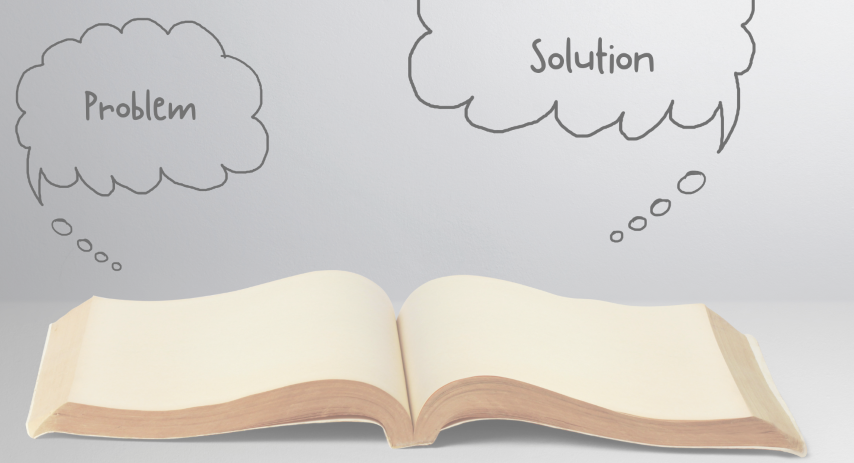
Episode 1 – Empath and Narcissist

Episode 1 – Empath and Narcissist
Episode 1 – Empath and Narcissist
Podcast 1
the Empath and the Narcissist
…a way out of the darkness
Beginning
About 6% of the population are thought to be narcissists. If you’re living in a crazy-making relationship with a spouse, lover, parent, boss, neighbour, friend, sibling, co-worker… it could be that you are dealing with a narcissist.
Welcome to the Empath and Narcissist podcast. Empaths and Narcissists exist on opposite ends of the compassion scale. According to the Dalai Lama, compassion is the wish for another being to be free from suffering.
Empaths have so much compassion, they lose themselves in the suffering of others. Narcissists have so little compassion, they gain energy through the suffering of others. Destroyed and destroyer. They attract one another like a moth to the flame.
My name is Paula Boylan. I’m your host and I am an Empath. 30 years have passed since I stood at the altar and unknowingly married a Narcissist. 20 years of marriage and 10 years of hard won insight bring me to now; Stronger, Wounded, Wiser.
I learned from my time with a narcissist without losing the very best part of me – my compassionate nature.
Our world doesn’t need another wounded healer. We need evolved beings. No one heals from a relationship with a Narcissist. But you do change, and you can evolve. This podcast is a support for your story of evolution.
Podcast 1
And now for today’s show.
Both the Empath and the Narcissist – hereto known as Em and Nars – are characters who are indicative of the times we live in. Both are growing in number. Between them, they seem to personify the struggle between dark and light.
In the world of the selfie, many speak of being narcissistic as if it is a badge of honour. What is termed narcissistic in this narrow sense of the word may be nothing more than the development of a healthy level of self-esteem. There are selfish behaviours which may seem narcissistic, but they don’t cause pain to others. That’s one end of the spectrum.
At the other end of the narcissistic spectrum there are callous behaviours which destroy lives. This podcast addresses the level of narcissism which destroys lives. NPD or narcissistic personality disorder is incredibly harmful. It’s nothing to be proud of. Narcissists prey on people. Their prey of choice – Empaths.
Empaths also exist on a spectrum. The good news for them. It is possible to learn skills so they can be protected from harm. The prognosis for the Narcissist does not seem so rosy at present. WHY; they don’t see their behaviour as hurtful, so they don’t tend to seek help.
Let me introduce you to the attributes of the main players.
The Narcissist possesses innate skill. He/she knows how to manipulate. Their survival depends on it.
The Empath possesses innate skill. It is otherworldly. There is the capacity for great will, great compassion and great love.
Both read energy fields, in an often unconscious way. Nars can sense your compassionate nature. Em can sense your suffering and wants to help alleviate that suffering.
This is dark playing out against light. The bigger the contrast, the bigger the impact.
First, the Empath.
Less is known about this character. Empaths don’t go around causing pain and hurt to others. The pain and hurt they feel stems from an inner, hidden phenomena. Hence, you won’t find them in the DSM-5, (that’s the acronym for the Diagnostic and Statistical Manual of Mental Disorders, published by the American Psychiatric Association.) You will however find many of them in chat rooms, trying to make sense of the craziness they experience as a result of energetically merging with others.
This human experience is about learning to work with e-motions, or energy-in-motion. All humans do this as souls encased in a human suit. It’s like trapping a tornado in a box. We long to escape from the box, but that will only happen when the tornado learns love, compassion, acceptance, and non-judgement. It will only happen when the tornado loses its ferocity.
We are all learning to regulate our e-motions while living with other tornadoes who think differently, feel differently and act differently than we do. (If you believe in reincarnation, as I do…I often find it hard to believe we actually signed up for this experience!)
Empaths are at the stage in their evolutionary development where they are learning to regulate their e-motions while flooded with the e-motions of others. It’s an advanced lesson.
Empaths have the ability to directly experience what it’s like to be someone else. They don’t just understand your pain, they feel it. Your storm becomes their storm and they are learning to differentiate the two. They are learning to take responsibility for their emotions. They are learning to take ownership of what is theirs and theirs alone. When successfully learned, Empaths understand there are no victims in this life. That’s a biggie. It means we take full responsibility for where we find ourselves in this life. No more ‘woe is me’. There is great power in this realization.
Empaths are loving, compassionate people who take on the wounds of the world as part of their lesson plan. It can be hard for them to make sense of the emotions which enter their energy field. It can be impossible to determine if the emotions they feel belong to them or to another.
Many empaths have psychic abilities. The word psychic comes from a Greek root that means “the mind of the soul.” It basically refers to the perception of information without the use of the readily available and well known five senses. Empaths just know stuff. They can’t explain it with any sense of logic, but it is real none-the-less. Empaths have an intuitive, often subconscious way of reading the energy field of the people they encounter. Unskilled empaths unconsciously merge with those in pain to ease their suffering.
It’s estimated that about 1 in 20, or 5% of the current population are Empaths of varying degree.
Narcissists
Much of what is known of Narcissists come from the people who have been affected by those with the disorder. They, not the Narcissist, will seek help for the destruction wrought. The Narcissist is not likely to take responsibility for their actions, or for the consequences of those actions. They are more likely to move on to the next unsuspecting person and attempt to suck them dry while filling their own destructive needs.
Narcissistic Personality Disorder or NPD first appeared in the The DSM-III (remember, that’s the Diagnostic and Statistical Manual of Mental Disorders, published by the American Psychiatric Association) in 1980. I graduated from University with a degree in Psychology in 1984 having learned from the DSM-III. Unfortunately the attributes of NPD could be diagnostically similar to other Personality Disorders. (Subsequently, DSM-IV and DSM-V have made strides in the diagnostic criteria for NPD, but it is still a tough disorder to characterize.)
I couldn’t make sense of the person I married, or of the crazy making in my life based on my training. Nothing in my text books mirrored the experience with clarity. I looked at NPD as a possibility, but could also see aspects of other personality disorders in my then-spouse. The internet didn’t exist yet. I was a young mother of 2 living in Europe – away from my native home of Canada, and far from family, friends and books written in my language.
I spent the majority of my adult life trying to figure out what was wrong with the man I married. I was too close to the crazy making and lost sight of the forest for the trees. It wasn’t until 2009 that it all fell in to place. My then 20 year old daughter and me were driving in the car together. Out of the blue, she said “Dad’s a Narcissist”. I asked her why she would say that. She said “I saw it on Law and Order, Special Victim’s Unit. Narcissism fits Dad to a T”. I intuitively knew my ex-husband had a personality disorder, but could never label it. Perhaps my daughter was on to something!
As humans we often give our power away to others. We wait for another to label an experience. That was my problem. The psychological traits present first and then a label is found. It isn’t the other way around. It’s ridiculous to wait for the experts to tell us what we are experiencing. It is like putting the cart before the horse. Nars won’t come forward. The ones who live in the trenches with the Narcissist are the experts. We are the ones who will help the professionals understand this disorder that destroys lives.
Below is the DSM-5 criteria for the diagnosis of NPD. You may not recognize all the behaviours in your Nars. There may be some traits you experience which are not mentioned. The experts will catch up. This is only the first part of the listing. You can Google NPD DSM-5 to have a look for yourself. Perhaps this information will be one of the tools you will use to help you make sense of the life you may be sharing with someone who is displaying aspects of NPD.
Narcissistic Personality Disorder
DSM-5 Criteria – Revised June 2011
© 2012 American Psychiatric Association. All Rights Reserved.
A pervasive pattern of grandiosity (in fantasy or behavior), need for admiration, and lack of empathy, beginning by early adulthood and present in a variety of contexts, as indicated by five (or more) of the following:
1. Has a grandiose sense of self-importance (e.g., exaggerates achievements and talents, expects to be recognized as superior without commensurate achievements).
2. Is preoccupied with fantasies of unlimited success, power, brilliance, beauty, or ideal love.
3. Believes that he or she is “special” and unique and can only be understood by, or should associate with, other special or high-status people (or institutions).
4. Requires excessive admiration.
5. Has a sense of entitlement, i.e., unreasonable expectations of especially favorable treatment or automatic compliance with his or her expectations.
6. Is interpersonally exploitative, i.e., takes advantage of others to achieve his or her own ends.
7. Lacks empathy: is unwilling to recognize or identify with the feelings and needs of others.
8. Is often envious of others or believes that others are envious of him or her.
9. Shows arrogant, haughty behaviors or attitudes. Self-centredness; firmly holding to the belief that one is better than others; condescending toward others.
Narcissistic Personality Disorder
DSM-5 Criteria – Revised June 2011
© 2012 American Psychiatric Association. All Rights Reserved.
Narcissists can be found in our beds, our workplaces, and around our tables at home. They can be found in places of government, in boardrooms, in our neighbourhoods, in places of worship. They can be our parents, siblings, friends, spouses, bosses, government officials, CEO’s. The one thing they have in common. They are destructive.
They make up 6% of the population according to Jean Twenge and W. Keith Campbell, research psychologists at San Diego University who co-wrote The Narcissism Epidemic.
It’s not for us to diagnose another. It is also not for us to judge another. It is for us to learn to educate and protect ourselves. Understanding that others have the capacity to cause us great harm is the first step in protection.
This is a lot to digest so we’ll leave it there. There’s so much more to share going forward.
Until next time….Namaste – the spirit in me sees the spirit in you.
Ending
Thank you for joining us. You are an important part of the changes happening on our evolving planet. You are the light shining through the darkness, and you are not alone. If you haven’t done so already, please sign up for the podcast. You’ll be the first to know when a new one is posted. The podcast is only the beginning. There is also a wonderful support group, self-directed courses and personal coaching to guide you safely through your journey with a narcissist. Email paula@evolutioncoach.ca or visit evolutioncoach.ca or paulaboylan.com for more information. Take good care of yourself. You are who the world has been waiting for.



